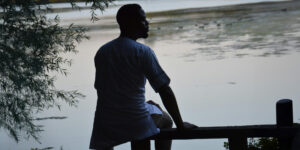On the 9th of March it was reported that 26 lives had been lost due to flooding following the disaster of Cyclone Idai. Thousands were left homeless and hundreds suffered injury. Many people are still missing. Numerous properties including houses and domestic utensils, crops, fields, roads and bridges were extensively damaged as the president declared state of national disaster. Five days later the death toll rose to 56. The effects are vast, as half of the country’s provinces suffered devastating to mild flooding.
Laxun Kalonga from Chitsime Newsletter sent me an email about the extent of the flooding in Malawi and her surrounds. The following is a quote:
The tragic Cyclone Idai claimed a total of at least 750 lives in Mozambique, Zimbabwe and Malawi by the 24th of March 2019. In addition to loss of lives, the natural disaster also rendered the survivors homeless, disabled, destitute and in need of urgent food and assistance in essential needs. Assistance in monetary terms came from governments, international humanitarian organisations, aid agencies, the private sector and individuals.
The European Union Delegation availed € 3.5 million and the African Union US$ 350,000 in emergency aid towards the cyclone whilst the UK Aid provided £ 18 million towards the cause. The Government of Zimbabwe committed to disperse RTGS$ 50 million to assist the victims and restore infrastructure destroyed by the disaster. Individuals and trusts also innovatively crowd-funded towards the disaster using GoFundMe, the most prominent one in Zimbabwe being one created by Freeman Chasi, which had raised USD 80,000 by the 25th of March.
Is climate change to blame?
Climate change is a global challenge today. Discussions have been on going for years how we might tackle the issues of climate change and global warming. From my local context in Malawi I have observed a few factors that have very likely contributed to climate change:
- Population growth. Malawi is an agricultural economy. As the population increases there is a scramble for farming space. For the past half a century forests have been cleared to allow for more space to farm. From the 80s to the present the population grew from 5.5 million to 17 million.
- Following population growth, cutting down trees to generate fuel for domestic use has also been carelessly done. Millions of trees have been cut down for charcoal and firewood, because 98% of the population cannot afford to use electricity for cooking.
- Lastly, spiritual poverty in the land. There is much nominal Christianity throughout Malawi. Lack of Christian maturity or genuine faith results in deficient Christian ethics. Future consequences are not considered and consciences have grown hard towards the land we have been entrusted with.
Mankind is to blame
Adam was given the responsibility of environmental care. When God places Adam in Eden it is so that he might work it and keep it (Genesis 2:15). Thus mankind’s dominion over the earth cannot be read as unanswerable authority (Genesis 1:28). Our authority and rule over the earth is derived from and accountable to our Creator God. After the fall, everything went wrong. What we see and experience at present is partly due to the problem of the fall. But thank God that in Genesis 3, immediately after the fall, a promise was given about his redemptive plan to restore the fallen, groaning and distorted creation.
The second Adam came into the world to correct what went wrong in Eden (Romans 5:12-21). Through Christ Jesus the environment can and will be restored (Romans 8:18-25). This is not limited to the future. Hearts changed by the gospel should lead to transformed thinking and behaviour. If the hearts of men can turn back to God through faith in Christ Jesus, human attitude towards nature can also be restored.
According to God’s design for creation we have a responsibility to conserve, preserve and steward the environment. We are set over the creation by the Creator to rule it well. Therefore, to combat climate change, the heart of man must be changed. Pulpits must preach human responsibility towards the environment and natural resources, but never apart from the ultimate restoration in Christ through the gospel.
In our context it is claimed that as much as 80% of the population is Christian. If this is true then the church is strategically placed to sound the alarm, calling Malawian people to seriously consider conservation of the glorious creation God gave to us. Only let us never stop preaching the glorious new creation promised in God’s gospel.











